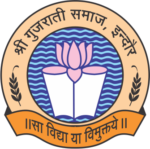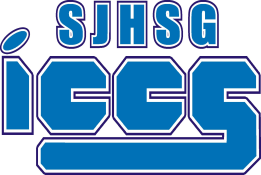- Instructor: guj_innovative
- Lectures: 48
Course Overview : Bachelor in Computer Application (BCA) is an undergraduate
degree course in computer applications. With the rapid growth of IT industry in India,
the demand of computer professional is increasing day by day. This increasing
growth of IT industry has created a lot of opportunities for the computer graduates.
Bachelor in Computer Application (BCA) is one of the popular courses among the
students who want to make their career in the IT (Information Technology) field. The
duration of the course is 3 years and divided into 6 semesters.
Eligibility criteria :
The minimum eligibility criteria for this course are:
Candidate must have passed class 12th or senior secondary examination with at
least 50% marks.
The 12th examination must be passed/Appearing with Mathematics as a
compulsory subject.
Job Opportunities:
The large spectrum of job opportunities available to aspirants of BCA are enlisted
below:
System engineer in the top companies like Infosys, Wipro, hp, Google.
A system engineer develop, test and evaluate software, circuits and personal computer.
Programmer in various software development firms.
The duty of programmer is to write code for software. A programmer is primarily works
in the computer language such as Assembly, COBOL, C, C++, C#, Java, Lisp, Python, etc.
Web developer in various web designing companies and online digital marketing
companies.
A web developer is a programmer who specializes in the development of world wide web
applications. The role of web developer is to build and maintain websites. A web
developer must have skills in HTML/XHTML, CSS, PHP, JavaScript , etc.
System Administrator in an organization including a bank, school or college.
A System administrator is responsible for setting up and maintaining the system or
server.
Software developer in the companies like Microsoft, Google, face book.
The sole responsibility of software developer is to develop software that ease the tasks of
the people and enable to perform work efficiently. A software developer also installs, test
and maintains the software.
BCA Syllabus
SEMESTER – I SEMESTER – II
Mathematics – I Mathematics – II
Statistics – I Statistics – II
Programming and Problem
Solving through C –I
Programming and Problem
Solving through C –II
PC Software Introduction to Information
System
Digital Computer Organization Operating System
Fundamentals
English Hindi
Practical – I
Programming and Problem
Solving – I
Practical – I
Programming and Problem
Solving – II
Practical – II
PC Software
Practical – II
Introduction to Information
System
SEMESTER – III SEMESTER – IV
Discrete Mathematics Computer Oriented Numerical
Methods(Using C)
Data Structure Using C Software Engineering
Object Oriented Programming
Using C++
Database Management System
UNIX Operating System Programming with JAVA
Accounting and Financial
Management
Environmental Awareness and
Green Computing
Communication Skills Entrepreneurship
Practical – I
Data Structure
Practical – I
Computer Oriented Numerical
Methods
Practical – II
Object Oriented Programming
using C++
Practical – II
Database Management System
Practical – III
UNIX Operating System
Practical – III
Programming Using JAVA
SEMESTER – V SEMESTER – VI
Linear Algebra and Geometry Operations Research
Computer Networks Internet and Web Technology
Introduction to Cloud
Computing
Computer Graphics and
Multimedia
Introduction to Data Science Principal and Practices of
Management
Human Values and
Professional Ethics
Project
Information Technology
Trends
Practical – I
Computer Graphics and
Multimedia
Practical – I
Network and Cloud Computing
Practical – II
Internet and Web Technology
using PHP
Practical – II
Data Science Using R
-
Semester 1
In this section we'll show you how this course has been structured and how to get the most out of it. We'll also show you how to solve the exercises and submit quizzes.
-
Lecture 1.1Mathematics – I
-
Lecture 1.2Statistics – 1
-
Lecture 1.3Programming and Problem Solving through C –I
-
Lecture 1.4PC Software
-
Lecture 1.5Digital Computer Organization
-
Lecture 1.6English
-
Lecture 1.7Practical – I Programming and Problem Solving – I
-
Lecture 1.8Practical – II PC Software
-
-
Semester 2
In this section you'll learn some basic concepts of programming languages and how to use them. You'll also learn how to write clean code using different code editors and tools.
-
Lecture 2.1Mathematics – II
-
Lecture 2.2Programming and Problem Solving through C –II
-
Lecture 2.3Introduction to Information System
-
Lecture 2.4Operating System Fundamentals
-
Lecture 2.5Hindi
-
Lecture 2.6Practical – I Programming and Problem Solving – II
-
Lecture 2.7Practical – II Introduction to Information System
-
-
Semester 3
In this section you'll learn some core concepts of Object Oriented Programming. You'll also learn how to structure the data, debug and handling exceptions.
-
Lecture 3.1Discrete Mathematics
-
Lecture 3.2Data Structure Using C
-
Lecture 3.3Object Oriented Programming Using C++
-
Lecture 3.4UNIX Operating System
-
Lecture 3.5Accounting and Financial Management
-
Lecture 3.6Communication Skills
-
Lecture 3.7Practical – I Data Structure
-
Lecture 3.8Practical – II Object Oriented Programming using C++
-
Lecture 3.9Practical – III UNIX Operating System
-
-
Semester 4
-
Lecture 4.1Computer Oriented Numerical Methods(Using C)
-
Lecture 4.2Software Engineering
-
Lecture 4.3Database Management System
-
Lecture 4.4Programming with JAVA
-
Lecture 4.5Environmental Awareness and Green Computing
-
Lecture 4.6Entrepreneurship
-
Lecture 4.7Practical – I Computer Oriented Numerical Methods
-
Lecture 4.8Practical – II Database Management System
-
Lecture 4.9Practical – III Programming Using JAVA
-
-
Semester 5
-
Lecture 5.1Linear Algebra and Geometry
-
Lecture 5.2Computer Networks
-
Lecture 5.3Introduction to Cloud Computing
-
Lecture 5.4Introduction to Data Science
-
Lecture 5.5Human Values and Professional Ethics
-
Lecture 5.6Information Technology Trends
-
Lecture 5.7Practical – I Network and Cloud Computing
-
Lecture 5.8Practical – II Data Science Using R
-
-
Semester 6
-
Lecture 6.1Operations Research
-
Lecture 6.2Internet and Web Technology
-
Lecture 6.3Computer Graphics and Multimedia
-
Lecture 6.4Principal and Practices of Management
-
Lecture 6.5Project
-
Lecture 6.6Practical – I Computer Graphics and Multimedia
-
Lecture 6.7Practical – II Internet and Web Technology using PHP
-


